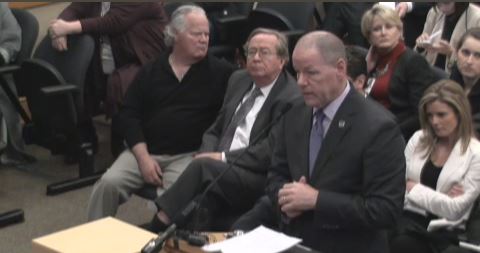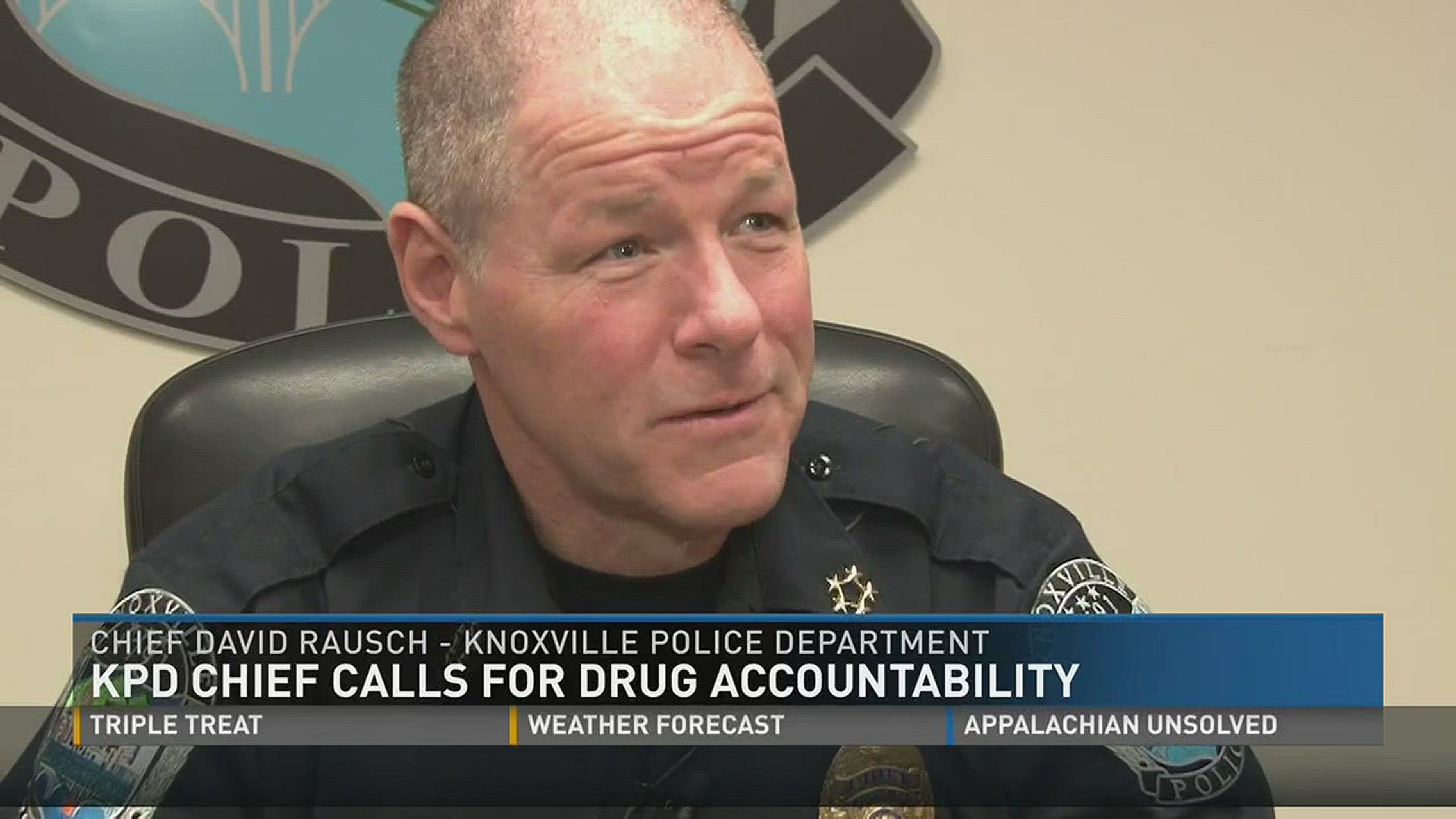A day after his emotional appearance before Tennessee lawmakers, Knoxville's police chief expounded Friday on why he talked openly about the current opioid "crisis."
"I’m not alone. There are thousands of others out there like me who are dealing with this on a personal level – that have family members that are dealing with it. You do everything you can to help them. You look for opportunities for them, which is what’s happening in my family," Rausch said Friday.
Rausch revealed to lawmakers Thursday that he's helping to raise a 6-month-old granddaughter born drug dependent. He'd been invited to speak about rampant prescription pill abuse and how law enforcement is fighting it.
"Thank God for Children's Hospital," he said then, alluding to specialized treatment East Tennessee Children's Hospital provides for babies caught in the web of addiction.
Rausch has been outspoken for several years about the community's prescription drug scourge.

Knoxville Police Department officers for about 18 months have been carrying a drug, naloxone, that revives overdose victims. Officers have revived more than 50 such people so far, he said.
And they're proud that they've been able to save people who otherwise would have died. KPD officers typically are among the first professionals to arrive on a scene in an emergency; they know today that they may be called on to save a life, he said.
Dispatchers in Knox County handle overdose calls on an almost daily basis. Several other agencies including Rural/Metro also carry the drug.
Rausch said while police are confronting the effects of addiction - those who overdose and those who commit crimes to pay for their drug habits - the medical profession should be doing more to ensure addicts can't get drugs.
"Bad actors" in the community continue to write prescriptions that allow abusers to get high and sell what they've got to other abusers.
"As a profession – now I’ll get a lot of calls from doctors and nurses because of this – but I’m calling them out," he said. "As a profession, they should be putting this in check themselves. We shouldn’t be having to fight this with legislation. We shouldn’t be having to fight this with law enforcement. They should be doing this themselves.”
Some very good programs in the community treat drug-abusing patients, he said. But more must be done. Addicts are sick people, he said, and they require extensive treatment and a life-changing regimen to beat their addiction.
Their brains literally must be re-wired to turn away from drugs, Rausch said.
The chief also spoke bluntly about proposed legislation that would legalize the medical use of marijuana. He is adamantly opposed.
He said Colorado has seen an increase in a raft of problems because of voters' decision to legalize marijuana sales. He said he was not opposed to the recent legalized use of cannabis oil as a medical treatment in Tennessee because the oil does not contain THC, the ingredient that produces pot's high.
But legalizing medical marijuana use will only complicate the current drug problem in the state. He added that the federal Food and Drug Administration has not blessed such treatment so it's not really a "medical" solution.
"Why do we need to add another drug to this equation – the access to it?" he said. "I know marijuana’s out there. But we’re gonna increase the amount that we have? How absurd. How absolutely insane.”

